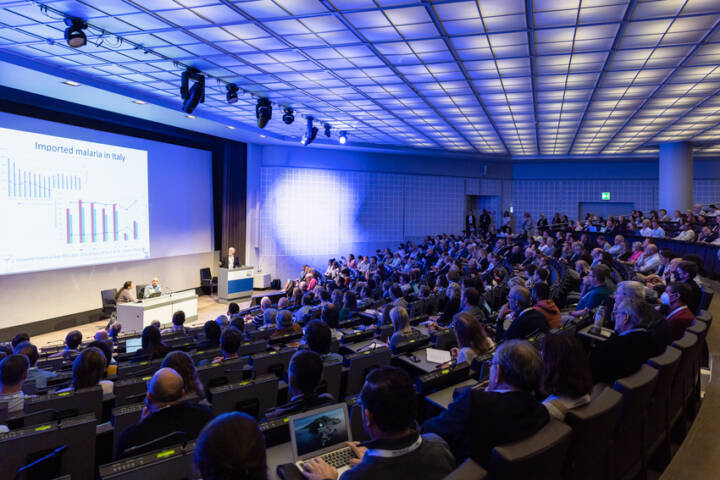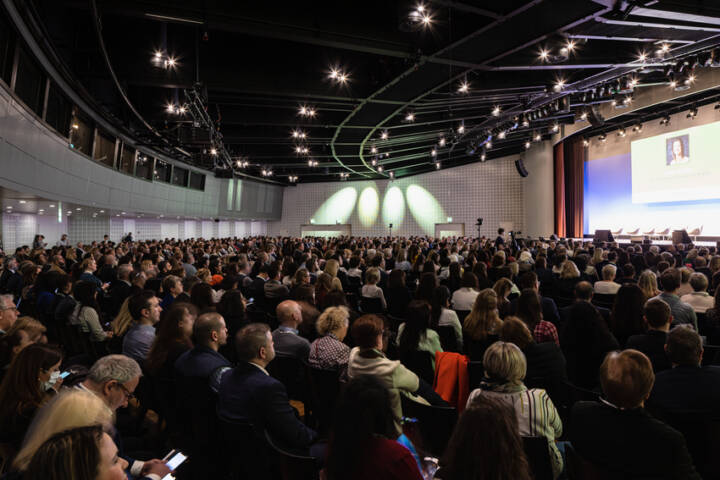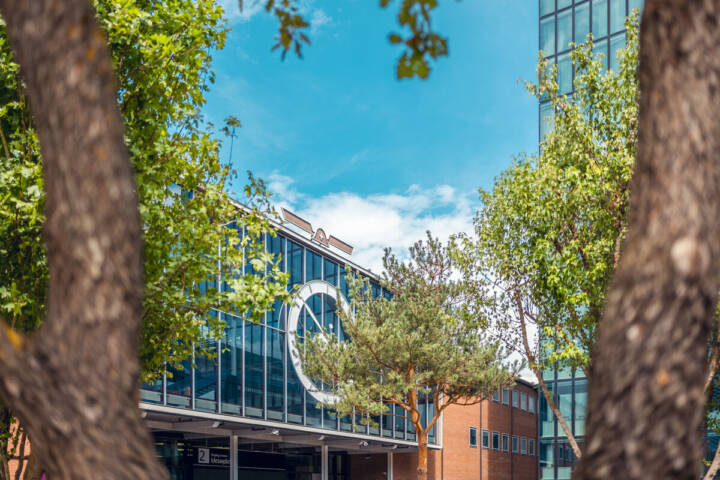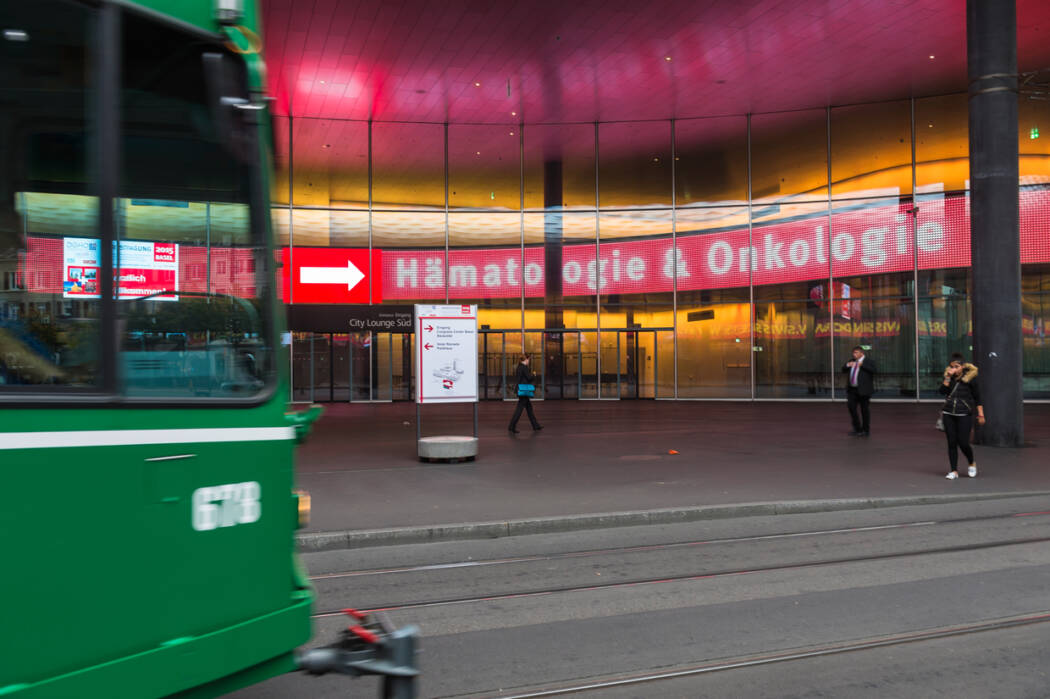
To ensure that participants can benefit from scientific lectures and top-notch further training sessions in the current situation too, the organisers took the short-term decision to stage the event in digital form this year. In so doing, they have set themselves the following aims:
- to summon up enthusiasm for the digital format amongst at least half the 5500 or so participants to date.
- to offer a programme with such a high level of appeal that it will be actively followed over an extensive period of time.
- to gain experience with alternative forms of fostering contacts, which can then be channelled into the development of new products.
We met up with organiser Iwe Siems and congress president Prof. Dr. med. Markus G. Manz to find out how they intend to do this.
When did you decide to stage this year’s meeting on a virtual basis and why?
Prof. Dr. med. Markus G. Manz: We took the decision in early summer. It became clear that it would not be realistic to hold a congress of this size in the normal manner for a whole host of reasons, given the current pandemic situation. And, as doctors, we also have to think of the direct consequences of any potential spread of SARS-CoV-2 by medical personnel.
Iwe Siems: Cancelling the event was also not an option for us, because the members of our four societies are active in a specialist field that is very much driven by innovations. This is why a lively discourse amongst our members and constant further training are absolute essentials. A congress like ours provides the best conditions for this. And because our clientele are also highly flexible in their day-to-day work, we are confident that they will readily accept the new format too.
What exactly will this year’s annual DGHO meeting look like?
Iwe Siems: The chairpersons and some of the speakers will be in Basel, guiding participants through all the sessions. To ensure interactivity, we will be using a chat function that allows participants to make contributions from their screen at home. This all works on the basis of the multi-streaming principle. Participants will have the opportunity to leave a session at any time and move on to a different one. Over a period of three days, six to seven live streams will be running in parallel from eight o’clock in the morning until seven in the evening. All the contents will also be accessible later on, and the online participants will be able to call them up until 31 October 2020. I am particularly interested to see what happens with the virtual version of our industry exhibition. We naturally hope that it will attract a large number of visitors, even if there are no joint breaks.
That all sounds exciting indeed. Are you assuming that congresses will only be staged virtually in future, or do you still consider that there is an advantage to analogue meetings?
Prof. Dr. med. Markus G. Manz: Analogue meetings will always have a value that virtual meetings can never replace. After all, we don’t just communicate with our relatives and friends via electronic media but much prefer to speak with them in person. Precisely the same applies for discussions with work groups. But we are also learning now that information can be passed on highly efficiently by digital means too, due not least to the enormous progress made in the communication media. It is even possible to stage lively debates. And we see that cutting back on travel time and hotel stays can save on resources.
The DGHO meeting is held in Basel on a regular basis. How do you find the Swiss edition compared to the meetings in Germany and Austria? Will the Swissness come across in a virtual event too?
Prof. Dr. med. Markus G. Manz: The joint meeting of the German, Austrian and Swiss Societies for Medical Oncology and Hematology is held in the three countries on a rota basis. In Switzerland, it has traditionally always been staged in Basel on account of its size. At each of the venues, the local flair is essentially conveyed during the time outside the congress. As I see it, the premises of the big conference centres scarcely differ anywhere in the world now. As far as Swissness is concerned, I feel that the customary perfect organisation, the open communication culture and the cosmopolitan spirit can be very easily conveyed in a virtual congress too.
What are the financial implications of the new concept for you? You have fewer participants but are expecting more income from the industry exhibition. Is that still comparable with the dimensions of the analogue congress?
Prof. Dr. med. Markus G. Manz: As President of the Congress, I have the delightful task of looking after the scientific contents of the congress. The organiser, WBHO e.V., the Association for the Promotion of Further Education in Haematology and Oncology, is in charge of the financial aspects. It must, however, be said that we are dealing with a completely new starting situation here. Only after the event will we be able to assess the response we have actually achieved. We have registered a very high level of participation for the submission of papers for the virtual congress and thus have a positive outlook.
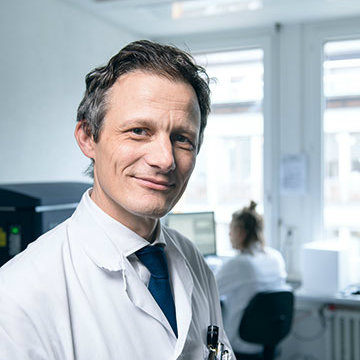
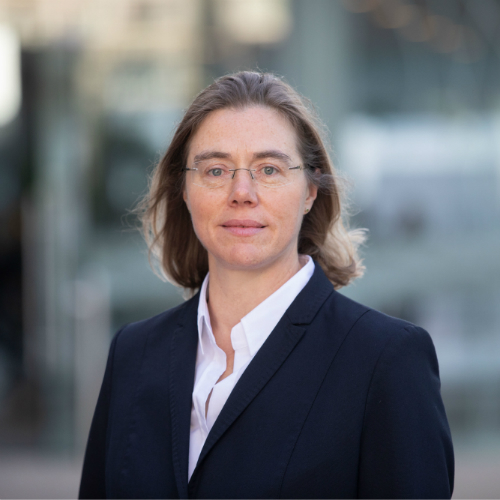
© DGHO Service GmbH

